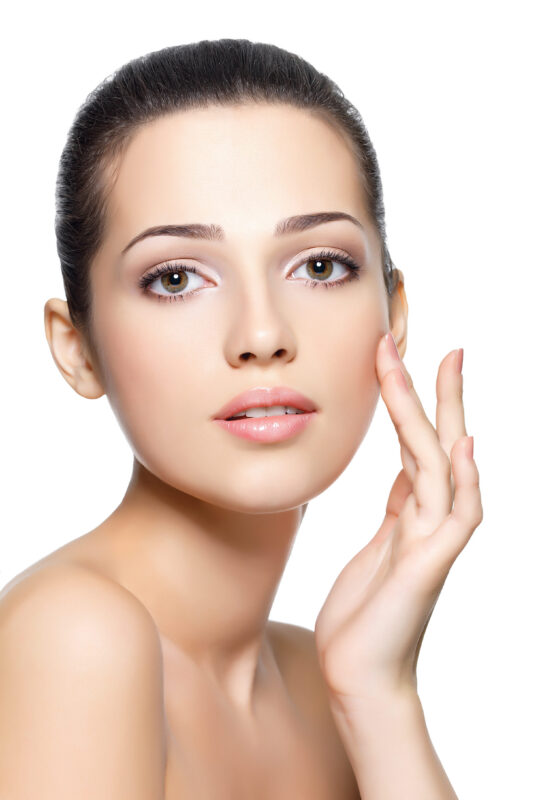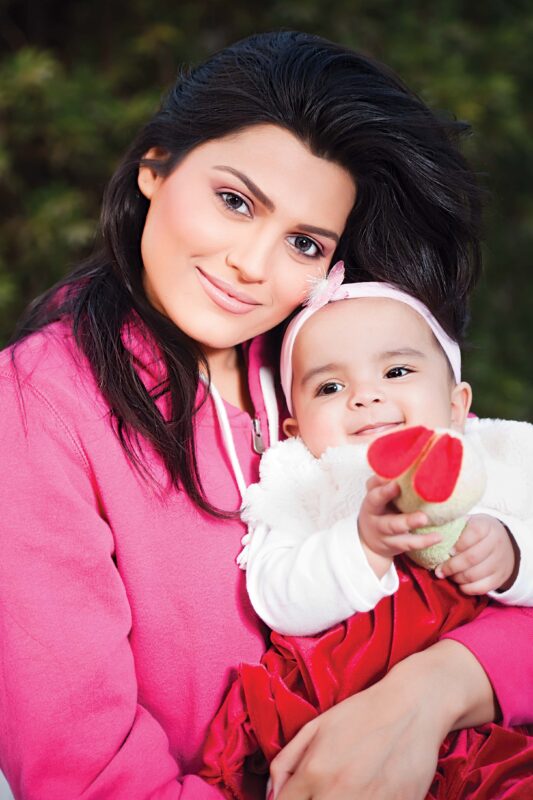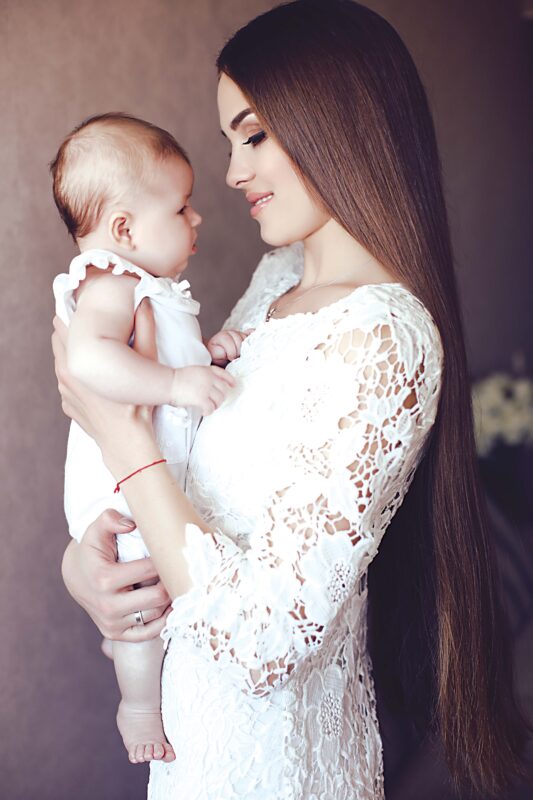Is your skin vying for attention post childbirth? The physical and hormonal changes combined with the emotional stress after delivery result in a number of skin woes and hair issues. Poonam Ahuja gets a panel of experts to suggest ways to replenish your complexion and tresses to stay young and beautiful.
Motherhood is one of the most demanding roles a woman plays. It brings with it a host of challenges. As a new mother, you not only have sleepless nights but also spend all your waking hours tending to your baby. No wonder you’re hardly left with any time to take adequate care of your skin. As a result, you suffer from dryness, acne, dark circles and other problems, which you may be unprepared for. Of course, the fluctuating hormones coupled with stress make your complexion dull and lifeless. You need to pamper your skin and body to look and feel beautiful from within and postpone premature ageing. We give you a complete lowdown on how to go about it.
Maintaining healthy skin
The stress and tiredness that come with handling a baby coupled with the hormonal changes post-pregnancy often lead to dullness of skin. According to Dr Anju Methil, dermatologist and cosmetologist with Skin & Shape Clinic in Mumbai, “During pregnancy, alteration in the appearance of skin is common due to the secretion of placental hormones. The best recovery for your skin is adequate rest post-childbirth. Skin changes that happen during or after pregnancy don’t usually need medical treatment. It recovers normally within a year. However, at times, the chloasma (mask of pregnancy) may take time to fade. Regular use of sunscreen will prevent aggravation. Creams with triple combination or lightening creams containing arbutin or kojic are also helpful.”
Simple pointers to skin care
• Regular skin care—cleansing, toning, moisturising and sunscreen—will give a fresh look to the skin. Some aesthetic procedures can help rejuvenate the dull and lifeless complexion.
• A good facial coupled with microdermabrasion rejuvenates the dermis and helps you get the
glow back.
• Creams derived from vitamin A like Tretinoin reduce stretch marks but should be used post-pregnancy. During pregnancy, moisturisers and vitaminE creams should be used.
• Laser therapy, deep peels and mesotherapy are other alternatives for treating stretch marks post-pregnancy.
• Hyaluronic acid-based fillers help clear dark circles.
Note: These procedures should strictly be done under the supervision of a dermatologist or
aesthetic physician.

Natural skin care at home
Rejuvenate your complexion with these must-dos at home:
• Exfoliate your over-stressed skin at regular intervals and nourish it with a good moisturiser.
• Use sunscreen regularly especially if you are prone to pigmentation.
• Use aloe vera gel to soothe your irritated skin and lighten the dark spots. Apply this magical lotion for 20 minutes daily.
• Apply papaya pulp on the skin and keep it for 15 minutes for a radiant glow.
• Apply tomato juice on your face and cucumber juice under the eyes to reduce pigmentation.
• Follow a healthy and balanced diet.

Go glam with make-up
L’Oréal Paris beauty expert, Namrata Soni, gives a lowdown on how to look your gorgeous best with make-up:
- Simplify your beauty routine by using fewer products and smaller amounts to reduce unnecessary exposure to chemicals.
- Skip lipsticks with lead and mascaras with mercury. Both lead and mercury are potent neurotoxicants and miniscule amounts can cause irreversible damage.
- For a naturally tinted lip, try mixing Honest Healing balm (Elizabeth Arden 8-hour) with a non-toxic food colour (check out your local grocery store for something like red dye made from beet juice). It’s an easy do-it-yourself trick and your lips will love the amazing moisturising effect of the botanicals and oils.
- Avoid products containing benzoyl peroxide, salicylic acid, or any of the retinoids when you’re pregnant.
- If necessary, try sulphur-based products to treat acne.
- Skin care products containing glycolic acid or alpha hydroxy acids are safer options.
A hair affair
Post-partum hair loss or sudden shedding (sometimes in clumps) of hair is a normal occurrence after pregnancy. It is commonly experienced by 50 per cent of new mothers 3-6 months after giving birth. Dr Methil says, “Hair growth is normally increased during pregnancy but post-delivery Telogen Effluvium i.e. an increased amount of hair loss may be noticed.” You need to take good care and follow a regular routine to prevent this loss. Dr Nupur Gupta, consultant unit head, gynaecologist and obstetrician with Paras Hospital in Gurgaon, adds, “Normally, the average head loses 100 hair strands per day—but not all at once, so you don’t notice them. Your pregnancy hormones keep those strands from falling out (which is why your hair looks as lush as a supermodel’s, or so thick that you can barely get a brush through it). But all good things come to an end. When those hormone levels drop back to normal, the extra strands shed too.”
Loss is temporary
Frequent hair loss is disturbing, no doubt. But don’t worry and relax, as it is a temporary phase. Dr Gupta advises, “Don’t freak out about hair loss. You’re not going bald, you’re just getting back to normal. If you’re breastfeeding, some of your extra hair may hang on to your scalp until you wean or start to supplement with formula or solids. Nursing or not, take comfort in knowing that by the time your baby is ready to blow out the candles on that first birthday cake (and has a full head of hair of his or her own, possibly), your catch-up hair loss procedure will be finished and your locks will be back to normal, too.” Regular washing with a thickening shampoo and brushing will help. Once the shedding stops, you will notice fine baby hair growing along your hairline at the top of your forehead.
Important tip: At night, gently rub an essential oil mix onto your scalp. Rosemary oil helps to stimulate hair follicles and combines well in a carrier oil (particularly coconut oil or rosehip seed) with lavender, clary sage and thyme.

Get-gorgeous hairstyles
Post-delivery, your hair will become frizzy and unmanageable and the texture might also change. Renowned celebrity hair stylist, Kanta Motwani, says, “It’s just the hormones that change the texture of the hair. Make your hair look healthy and bouncy by applying a good leave-in serum.” Try a new haircut to exude your best self. Not only mothers specifically, but anyone who goes for a haircut feels good and confident, as all the dead energy goes out with the hair. It’s the best way to boost your mood too. Motwani says, “Hair care and grooming is an important aspect of your personality. So don’t ignore your mane and let it be. If you don’t take good care of yourself, it may lead to postpartum depression.”


